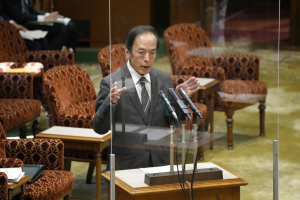Digitalization of the Economy and International Taxation(-2024)
In 2021, the OECD/G20 agreed on a historic two-pillar “solution” to taxation issues in today’s digitized economy, where high-value intangibles are gaining increasing prominence, including introducing a 15% global minimum tax. Following the standards prescribed in the international agreements, Japan has launched tax reform ahead of other countries in 2023 and is expected to introduce concrete measures going forward.
The OECD is also accelerating discussions in such areas as environmental taxation, taxation of high-net-wealth individuals, taxation of the gig economy, and taxation of human capital. Japan will need to respond promptly to these initiatives as well.
This research project, whose members include tax law scholars and policymakers who are familiar with the practical aspects of taxation, aims to contribute to Japan’s response by analyzing specific policy and technical issues that are likely to arise in formulating new treaties and domestic tax laws. The project will also address general taxation issues discussed internationally and respond to the interests of citizens and businesses by promoting discussion on international taxation in Japan.
RECENT CONTENT
-
Maintain the momentum for implementing historic international tax reform
Maintain the momentum for implementing historic international tax reform
-
Preventing the Two-Pillar Solution to International Taxation from Breaking the Camel’s Back
Preventing the Two-Pillar Solution to International Taxation from Breaking the Camel’s Back
-
Crypto Assets and Taxes
Crypto Assets and Taxes
-
Be Prepared for New Tax Competition: Impact Assessment of Two Minimum Taxes of the OECD
Be Prepared for New Tax Competition: Impact Assessment of Two Minimum Taxes of the OECD




![[Policy Research] Water Minfra: A New Strategy for Water-Centric Social Infrastructure](/files_thumbnail/research_2023_Oki_PG_Mizuminhura_png_w300px_h180px.png)

















































